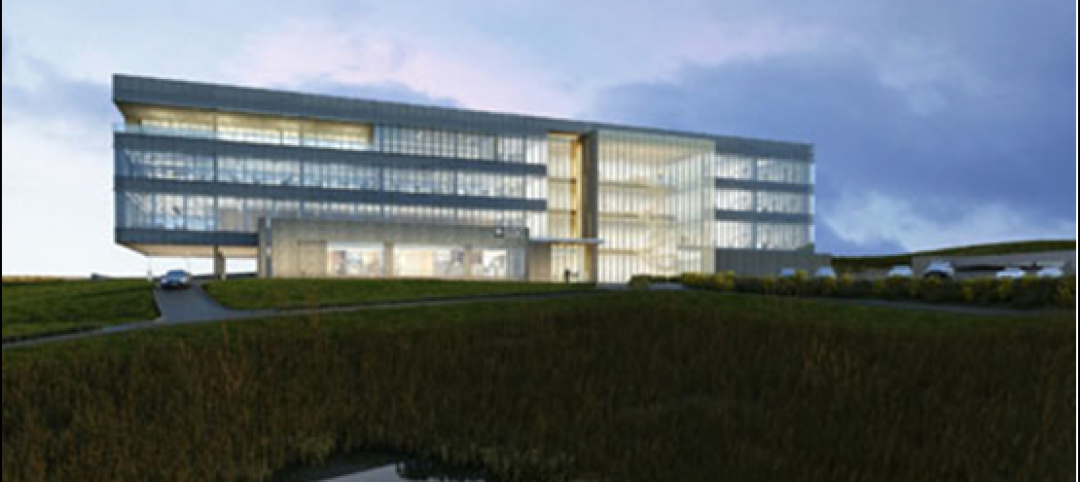BD+C: What are the prospects for the U.S. hotel industry and hotel construction?
Igor Krnajski: In the last couple of years we’ve had a pretty good downturn, of course, but the next five years are looking much better. The industry as a whole is forecasting gains in the 5-7% range. At Denihan, because we’re New York-centric, we were up 11% last year, and we’re forecasting 10% gains for this year. There have been a lot of conversations about how properties have been neglected, and that capital dollars need to be expended.
BD+C: How do you think that will break down between new hotel construction and reconstruction of existing properties?
IK: The initial surge will be in reconstruction, in the upkeep of your own portfolio. Then it will go into the expansion of portfolios, companies taking over existing properties and repositioning them. As for new construction, the financial markets are not fully ready to support new build. They’re looking to minimize risk by investing in properties that have operating cash flow. It’s all about managing risk, and if we as an industry show a couple of years of solid growth, investment in new construction will come back.
Any new hotel construction will be in areas that need an influx of new rooms, underserved areas like Dallas and Houston and Boston, and even Washington, although it is much more difficult to build new there.
BD+C: Any specific geographical growth areas for Denihan?
IK: We’re looking to expand primarily within the U.S., such as in Dallas. We’re very East Coast-centric right now, and we need a balance on the West Coast—places like Los Angeles, Seattle, San Francisco.
BD+C: Howard Wolff, an SVP at hotel designer WATG, has blogged that “bling has blung,” that high-end guests are concerned about ostentation and the appearance of conspicuous consumption in their choice of hotels. Is this a trend?
IK: Our customers are looking for more of a residential environment, rather than just a hotel room. The desire to entertain within their hotel space is much greater, so they want office/living/entertainment within the same space.
It used to be you catered to business class—the fax machine, the big desk—but now it’s a laptop and wi-fi, and a banquette with a table, so the guest can work there and also have dinner right there. And we have to provide solid technology: Internet, lighting and temperature controls, window treatments, AV, and other guest amenity services.
It’s a matter of changing tastes, but “bling” will be back some day. There’s always room in the market for luxury.
BD+C: What about green design and operations?
IK: “Environmentally thoughtful” is the term we’re using. There’s definitely a balance between comfort and environmental awareness that our guests are looking for. They’re much more sophisticated these days. Guests want to feel that they’re doing the “green” things that they may be doing at home, like recycling and saving energy, but in a hotel environment, they want the luxury of being a little bit naughty—taking a long shower, for example.
We’re constantly doing light bulb audits, installing dual-flush toilets and showerheads with internal flow constrictors, and in-house recycling. We’re looking at LEED aspects for our projects, but getting LEED accreditation for buildings in New York City is not easy. There’s a fine line between conservation and the guest experience but I do think the industry is listening.
BD+C: Are you commissioning your properties?
IK: We do commissioning. We think it’s better to be preemptive than to wait for equipment and systems to become a problem. As for metrics, in a hotel environment, it’s a very difficult calculation, because it’s affected by the use of the rooms, and it’s very seasonal, but we know we have saved year over year as a result of commissioning.
BD+C: As SVP of Design and Construction for a luxury hotelier, what advice do you have for AEC firms that want to do business with firms like yours?
IK: Our biggest ongoing issue with AEC firms is that they’re not always thinking in terms of the hotel operator’s mindset. There are many operational aspects that are exclusive to hotel design. We’re hiring them to give us good ideas, but if they understood our operations better, that would make the working relationship much smoother.
I’ve seen situations where the designers grossly underestimated the size of the staff, with the result that they followed code requirements but designed in only one shower for the male staff’s locker room. We as owners and operators have an obligation to educate our design teams, but designers should know better than to make mistakes like that.
BD+C: What, in your professional role, keeps you up at night?
IK: Our guests are more social media-minded, and that is putting pressure on us to keep up with them. The feedback is plentiful and immediate, and expectations are higher than ever. Yet you can’t be constantly changing things. How do we evaluate their input quickly, because by the time you get there, there’s a new trend? How do you respond? How do we filter this fantastic information from our customers and implement it? You’ll miss the boat if you don’t.
Related Stories
| Jun 13, 2012
Free webinar on Designing and Building Green Schools scheduled for June 20
USGBC Center for Green Schools and other experts to present practical tips.
| Jun 13, 2012
GAF’s Roving Truck promotion coming to your town soon
Professional roofing contractors or builders/remodelers in the U.S. can enter to win a Ford F-150 truck.
| Jun 13, 2012
Is it time to stop building convention centers?
Over the last 20 years, convention space in the United States has increased by 50%; since 2005, 44 new convention spaces have been planned or constructed in this country alone.
| Jun 13, 2012
Steven L. Newman Real Estate Institute to hold energy asset conference for property owners, senior real estate managers
Top-level real estate professionals have been ignored as the industry has pushed to get sustainability measures in place.
| Jun 12, 2012
SAC Federal Credit Union selects LEO A DALY to design corporate headquarters
LEO A DALY also provided site selection, programming and master planning services for the project over the past year.
| Jun 12, 2012
Restoration Millwork exterior trim achieves GreenCircle certification
Made from cellular polyvinyl chloride, the full line of Restoration Millwork trim, beadboard and accessories is engineered to look, feel and work like top-grade lumber.
| Jun 12, 2012
Piché joins C.W. Driver as director of business development
Piché will expand upon project opportunities for firm’s Southern California operations.
| Jun 12, 2012
BCA Architects transforms Anaheim schools into dynamic learning environments
BCA Architects was selected to update the district's long-range master plan.
| Jun 11, 2012
Survey reveals emerging trends in parking
Industry-transforming innovations are changing the way we park.
| Jun 11, 2012
Buro Hapold hires new principal Neil Porto
Porto brings a broad depth of expertise in civil and structural engineering to new and existing projects.
















